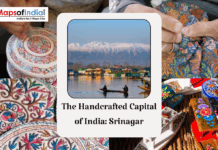Every culture has its own cultural practices, and these practices shape societies. They offer wisdom and foster connection. In recent years, with the rise of global exchange, traditions worth adopting are also being exchanged. From Japan’s mindfulness to Iceland’s equality, these practices enrich the lives of the communities. They promote health, community, and sustainability. By embracing them, we enhance our well-being.
Japan’s Shinrin-Yoku: Forest Bathing for Wellness
Shinrin-yoku means forest bathing. This first bathing practice is done for human well-being. This practice started in Japan in the early 1980s. Japan’s Ministry of Forestry promoted this worldwide. This practice reduces stress through nature immersion. Studies have shown that those who adopt this practice have lower cortisol levels. According to the Frontiers in Psychology report, a 20% blood pressure reduction was found. Walking slowly in the forests. Observing trees and breathing deeply. These things boost immunity and sharpen our focus. Japan has 68% land covered in forest, which makes it an ideal place for this. According to the recent Healthline article, a minimum of 20-minute sessions work. Urban parks suffice for city dwellers. It fosters mental clarity. Adopt it for calm and health. Regular nature walks heal body and mind.
Iceland’s Gender Equality: A Model for Fairness
Iceland promotes and leads gender equality around the world. According to the World Economic Forum report, Iceland ranks first in terms of gender equality in the world. A WEF report notes nine years at the top. Laws in Iceland promote equal pay. Companies prove compliance yearly. According to a recent OECD article, women hold 47% of parliament seats. Parental leave is shared equally. Both parents get three months’ paid leave. This balances work and family. Public campaigns are done to challenge these stereotypes. Schools teach equality from an early age. It reduces workplace bias. Parents share parenting duties fairly. Society promotes women in leadership roles. This practice builds inclusive societies. Fairness benefits everyone.
Bhutan’s Gross National Happiness: Prioritising Well-Being
Bhutan measures success by the happiness of its people. Gross National Happiness (GNH) began in 1972. King Jigme Singye Wangchuck introduced this index to the world. This index values the mental health of a nation’s citizens over the nation’s GDP. Nine domains include health and community vitality. Surveys are conducted to assess citizen well-being. According to a recent UN article, 91% of Bhutanese report happiness. Policies in this nation are made to prioritise free education. Healthcare is universal. Meditation is a common practice in schools. The 2023 World Happiness Report ranks Bhutan high. Valuing family time over wealth is a basic reason. Support community welfare programs. GNH fosters balance. It redefines progress for all.
Italy’s Slow Food Movement: Savouring Sustainable Eating
Italy’s Slow Food Movement began in 1986. Carlo Petrini founded this movement in Bra. A recent Slow Food International report opposes fast food culture. This slow food movement promotes local and sustainable cuisine. Over 100000 members from over 160 countries are participating in it. Farmers’ markets thrive in Italy. According ot hte recent Food Tank article says it preserves 5000 food traditions. Meals are cooked from scratch, and everything is grown on the farm. Dining is followed as a social ritual. This practice reduces processed food consumption. According to the Lancet study, practising this practice lowers the risk of obesity. The first step is to grow herbs or shop locally. Cook with fresh ingredients. Share meals with loved ones. Slow Food enhances health. It strengthens community bonds.
Finland’s Sauna Culture: Healing Through Heat
Sauna, healing through heat, is a famous Finnish tradition. Saunas date back over 2000 years. According to the Visit Finland article says more than 90% of Finns visit a sauna weekly. Over 3 million saunas exist in this country for 5.5 million people. These heat sessions last 10 to 20 minutes. Temperatures of the sauna hit 80 to 100°C. Taking a bath in this hot water sauna has its own health benefits. Saunas improve heart health. They also reduce stress and muscle pain. Cold plunges follow for circulation. According to the Journal of Physiology, it has been found that taking a bath in a sauna 15% lowers the cardiac risk. Saunas foster social bonding. Adopt weekly heat therapy. Use local gyms or home saunas. Pair with cold showers. This practice boosts physical wellness. It’s a ritual of relaxation.
South Africa’s Ubuntu: Embracing Community Spirit
Ubuntu is a South African philosophy. It means “I am because we are.” A recent BBC article traces this philosophical practice back to Nguni Bantu culture. Nelson Mandela and Desmond Tutu popularised this philosophy. This philosophy emphasises the collective well-being of a community. Communities share resources and support. African Studies Review says it rebuilt post-apartheid unity. Ubuntu encourages empathy and cooperation among people. Rural villages practice this daily. This philosophy played a very important role in social cohesion in African nations. Volunteerism reflects its spirit. Adopt community service habits. Share skills with neighbours. Support local charities. Ubuntu strengthens social ties. This practice fosters a sense of belonging in the community.
India’s Yoga and Meditation: Mind-Body Harmony
The world is adapting to yoga. Yoga originated in India 5000 years ago. The Upanishads and the Bhagavad Gita shaped it. According to the WHO report, more than 300 million people practice yoga globally. Meditation complements yoga’s physical poses. Asanas like Surya Namaskar build strength. The Pranayama breathing technique is done to calm nerves. A Harvard Medical School study shows that people who practice yoga experience a 30% reduction in their stress levels. Meditation boosts focus and sleep. India’s AYUSH Ministry promotes yoga worldwide. A Lancet article notes lower anxiety levels in yoga practitioners. Classes are available worldwide. Interested people can start with 10-minute sessions. Use apps or local studios. Yoga fosters mental clarity. It enhances physical health. Adopt it for holistic well-being.
Conclusion
These cultural practices from different parts of the world offer universal lessons to everyone. Shinrin-yoku heals through nature. Iceland’s equality sets a fairness standard. Bhutan’s GNH redefines success. Slow Food promotes sustainable eating. Finland’s saunas boost health. Ubuntu builds community. Yoga fosters mind-body balance. According to the UN report, cultural exchange drives progress. Each practice addresses modern challenges. Stress, inequality, and disconnection are the challenges faced by today’s society. These traditions help to counter them. A National Geographic article notes the rise in global adoption of different cultural practices. They’re simple to integrate. Small changes yield big impacts. Societies benefit from shared wisdom. These practices inspire healthier lives.





